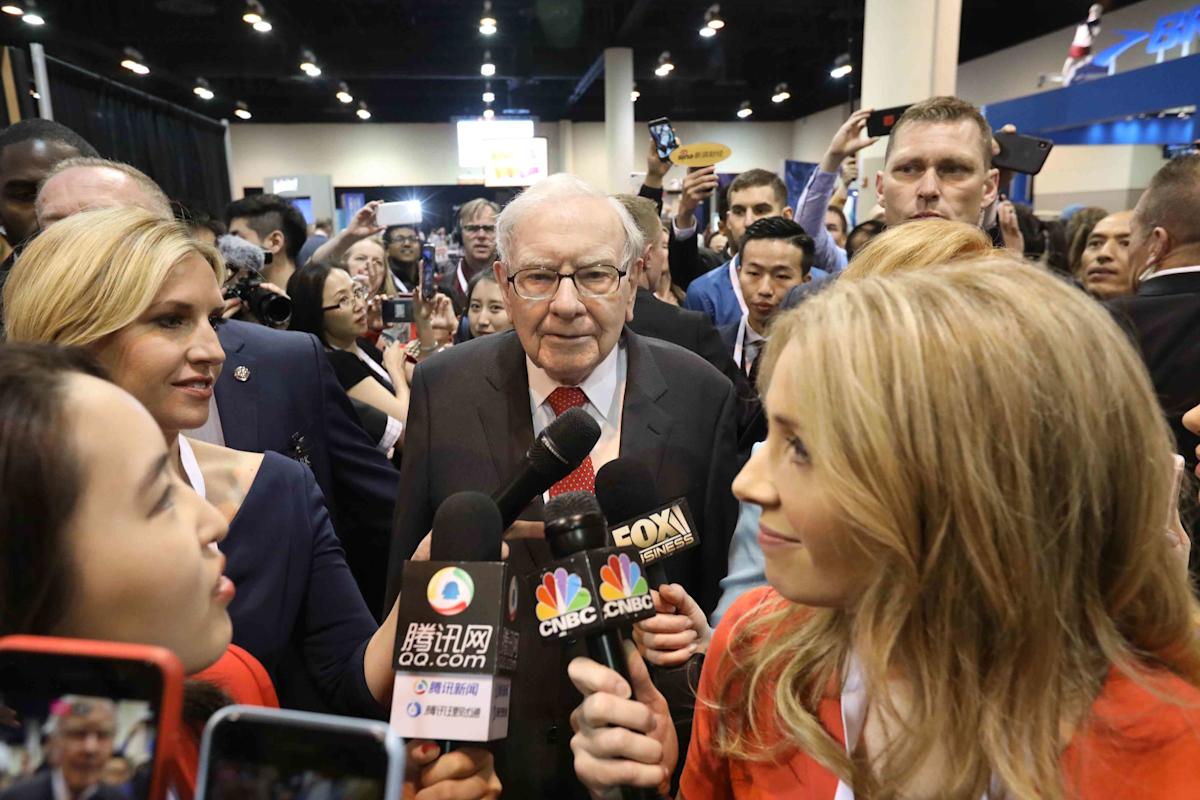Berkshire Hathaway’s Record Cash Pile Could Signal Buffett Is Waiting for Better Opportunities
Yang Chenglin / Xinhua/ Getty Images
Warren Buffett speaks to reporters during the company’s annual shareholders meeting in Omaha, Nebraska, on May 4, 2019.
-
Warren Buffett’s Berkshire Hathaway reported that its profit rose in the third quarter, while its cash pile ballooned to a new record of more than $381.7 billion.
-
The company did not announce share buybacks.
Berkshire Hathaway (BRK.A; BRK.B)’s cash stockpile hit yet another high, according to the conglomerate’s third quarter earnings released Saturday.
Berkshire reported third-quarter operating earnings of $13.5 billion, up from $10.1 billion a year ago and $11.2 billion in the prior quarter. The gains were largely attributable to a surge in insurance income.
Its cash and equivalent holdings grew to $381.7 billion, hitting a record.
Berkshire Hathaway is one of the largest companies by market cap, with one of the most expensive stock prices. Investors are closely watching the company as its highly regarded CEO, Warren Buffett, prepares to retire by the end of the year.
The conglomerate’s cash pile was up again after falling slightly to $344.1 billion in the second quarter. The vast majority of Berkshire’s cash stockpile is invested in short-term Treasury bills.
Cash stockpiles are important to Berkshire shareholders because they’re often thought of as “dry powder“—money that can be invested in businesses that meet Berkshire’s value-focused acquisition and investment strategy.
The record cash pile could indicate that Buffet is waiting for a good deal. Investors don’t see big gains by holding cash and Treasury bills. Instead, the company is generating low-risk yields while likely waiting for better bargains in the stock market.
Once again, the company abstained from buying back any shares.
This extends one of the longest periods without a buyback since Buffett was given expanded buyback authority in 2018. Companies typically buy back stock when they think it’s undervalued. Buybacks boost investor returns by increasing the proportion of earnings that each share is worth.
Investors have been keeping a particular eye on the company since the “Oracle of Omaha” said he would step down as Berkshire’s CEO at the end of the year.
Berkshire’s class B shares have risen 6.1% so far this year, trailing behind the benchmark S&P 500 index’s 16.3%. That’s a reversal of last year, when the conglomerate’s shares slightly outpaced the broader market.
The company’s stock growth is likely being affected by a loss in what analysts are calling the “Buffett premium.”



Leave a Comment
Your email address will not be published. Required fields are marked *